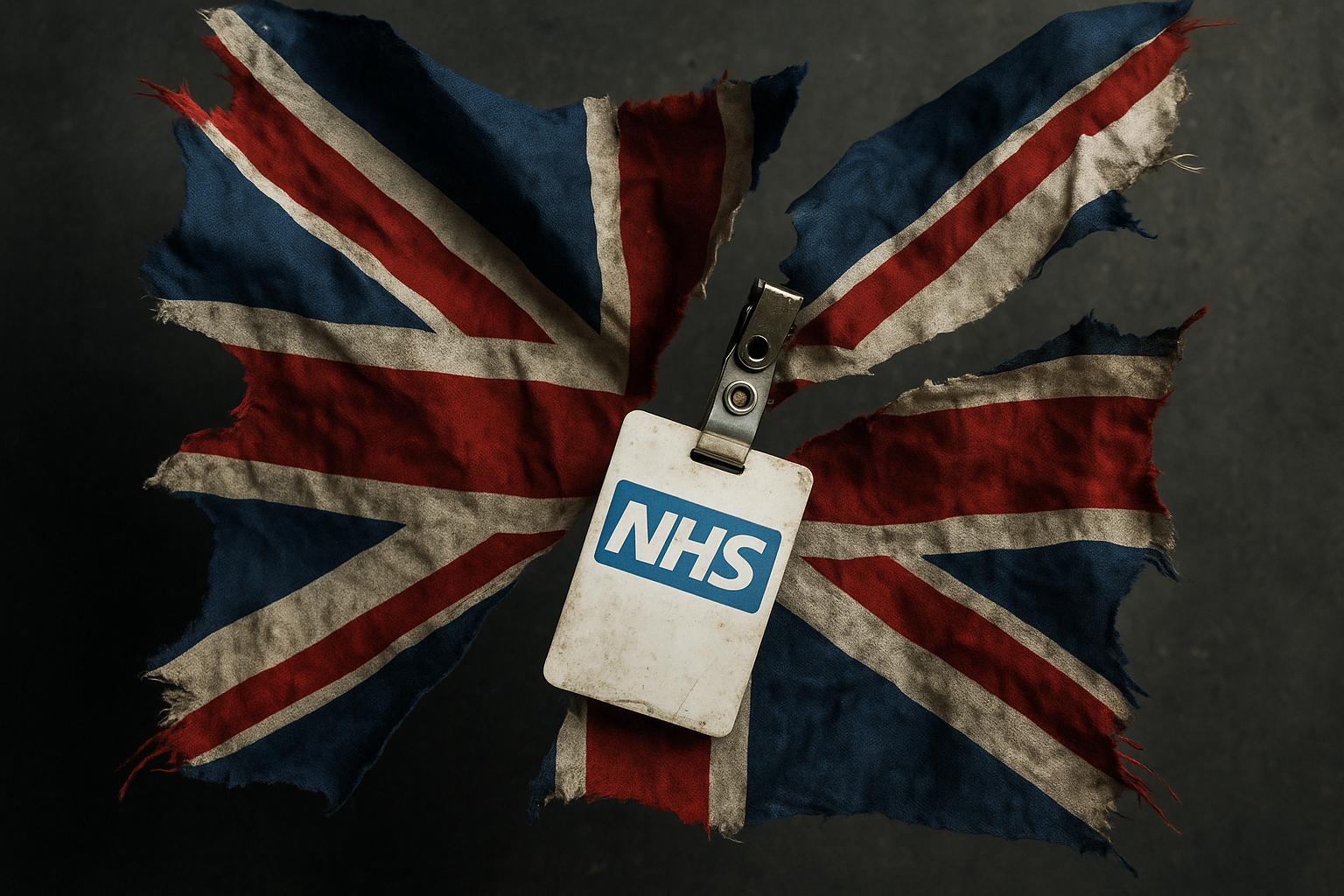The resurgence of “ugly” racism in Britain, reminiscent of the 1970s and 1980s, has become a disturbing trend, with NHS staff increasingly bearing the brunt of such hostility, Health Secretary Wes Streeting has warned. In a recent interview, Streeting expressed his shock at the rise in verbal and physical abuse directed at NHS workers, particularly those in accident and emergency departments, due to delays in care. He described a troubling pattern where racism has become “socially acceptable” once again, highlighting the urgent need for a zero-tolerance approach to abuse against frontline healthcare staff.
Streeting recounted disturbing incidents where patients refused care from staff based on their ethnicity, underscoring the continued presence of racial prejudice within the NHS. He pointed out that while frustrations over long waits and healthcare access can be understandable, they never justify racially motivated aggression against staff. He further condemned politicians who he believes have inflamed racial tensions by condoning or leaning into racist sentiment, attributing part of the problem to the erosion of social norms against racism seen half a century ago. This resurgence coincides with reports from the Royal College of Nursing (RCN), which revealed a sharp rise in racist abuse toward ethnic minority nurses, with calls to their support helpline increasing by 55% over recent years. The RCN projects over a thousand cases will be reported in 2025 alone, painting a stark picture of growing hostility in NHS workplaces.
Experts and advocates echo these concerns. Professor Habib Naqvi, chief executive of the NHS Race and Health Observatory, emphasised that the NHS reflects wider societal attitudes, and rising racism in the community inevitably plays out within the healthcare workforce of 1.5 million employees. Similarly, Professor Nicola Ranger from the RCN linked the spike in racist incidents to a broader political context marked by anti-migrant rhetoric, which emboldens such behaviour and stains both society and the NHS. The situation is compounded by findings from a Middlesex University study revealing deeply embedded racism within NHS organisational culture, with 71% of UK-trained ethnic minority staff reporting race discrimination and many feeling unfairly scrutinised or excluded from development opportunities.
Government efforts to combat racism in the NHS are underway, including a government-commissioned review to examine healthcare regulators’ handling of racism and the introduction of mandatory anti-racism training for all NHS personnel. Prime Minister Keir Starmer has endorsed these steps, recognising the critical need to safeguard both patients and staff from discrimination and abuse.
The current winter season poses additional pressures on the NHS, with a perfect storm of flu, Covid-19, and ongoing doctors’ strike action threatening to overwhelm services further. NHS England chief executive Jim Mackey and Health Secretary Streeting have been candid about the likelihood of hospitals facing severe strain, including patients waiting on trolleys in corridors and ambulances. Mackey described such corridor care as a “horrible, visible sign” of declining standards, which keeps him awake at night. The strike action by resident doctors seeking a 29% pay rise, amidst prior salary increases nearing 29% over three years, raises concerns about the impact on patient safety and NHS staff wellbeing during an already challenging winter.
Despite the immense challenges, the government and NHS leaders stress the importance of maintaining dignity and respect for healthcare workers. As Streeting emphatically put it, the right to free NHS care does not include the right to abuse staff on racial or any other grounds. The call is clear: society must reject this revival of racial hatred and work to reinstate a climate where racism is unequivocally unacceptable.
📌 Reference Map:
- [1] The Guardian – Paragraphs 1, 2, 3, 4, 5, 6, 7, 8, 9, 10, 11
- [2] The Guardian – Paragraph 1
- [3] Royal College of Nursing – Paragraph 3
- [4] UK Government – Paragraph 5
- [5] Middlesex University – Paragraph 4
- [6] North Staffordshire Combined Healthcare NHS Trust – Paragraph 4
- [7] YouTube (Wes Streeting video) – Paragraph 2
Source: Noah Wire Services
